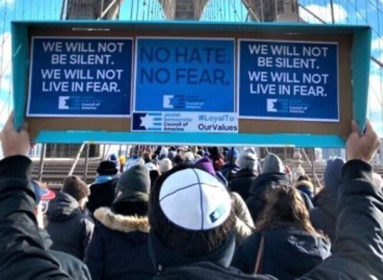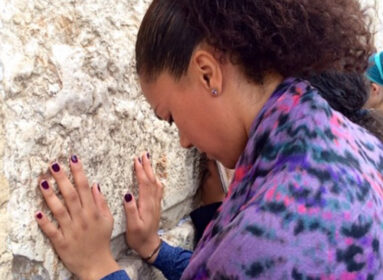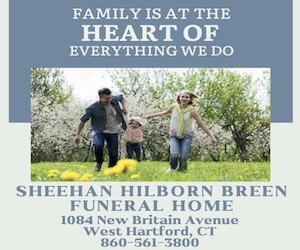
By Judie Jacobson
Alan Zweibel’s first claim to fame came more than four decades ago when the Jewish boy from Long Island became one of the original writers for a new and innovative live TV show called “Saturday Night Live.”
And that was just the beginning.
Since then, Zweibel has won multiple awards for his work in television — which, in addition to SNL, includes “It’s Garry Shandling’s Show” (which he co-created and produced), “Monk,” “PBS’s Great Performances,“ “The Late Show With David Letterman” and “Curb Your Enthusiasm.” Add to that his stage credits — i.e., his collaboration with Billy Crystal on the Tony Award-winning play “700 Sundays,” Martin Short’s Broadway hit “Fame Becomes Me,” and the off-Broadway play “Bunny Bunny – Gilda Radner: A Sort of Romantic Comedy,” which he adapted from his best-selling book of the same name. And, several books — among them the 2006 Thurber Prize winning novel The Other Shulman, the children’s book Our Tree Named Steve, North, the novel Lunatics that he co-wrote with Dave Barry, and the recently released middle grades novel Benjamin Franklin: Huge Pain In My ___ that he co-wrote with Adam Mansbach.
No doubt, all that has prepared him for what promises to be his next triumph: On Tuesday, Sept. 20, Zweibel will headline Visions 2017, the signature philanthropy event kicking off the Jewish Federation of Greater Hartford 2017 Annual Campaign.
Zweibel, who in 2010 received the Writers Guild of America, East Lifetime Achievement Award, is currently an executive producer for the Showtime documentary series “Inside Comedy” starring David Steinberg. He recently completed writing a parody of the Haggadah (with Dave Barry and Adam Mansbach) which will be published in the spring of 2017, and is writing the book for a Broadway musical version of the movie “Field of Dreams.”
The Ledger recently spoke with Zwiebel about his long and illustrious career…and more.
JEWISH LEDGER (JL): You were very close friends with the late comedian Gilda Radner — whom you wrote a book about and whose husband Gene Wilder died recently. What can you tell us about him?
ALAN ZWEIBEL (AZ): Yes, I wrote Bunny, Bunny in 1994. It was adapted into a play in 1997 and it’s coming back to Broadway next year as a musical. Gilda was the godmother of all three of our children. So, when she started going out and then marrying Gene he was a big part of our lives. When our third child was born they were married at that point, so he was the godfather of our youngest kid. So I knew Gene very well. After Gilda passed it started to diminish a little bit — a lot of our involvement with Gene at that point had to do with Gilda’s Club stuff [an organization that provides programs and services for those living with cancer] because I do a lot of speaking engagements on the club’s behalf; and a lot had to do with Bunny Bunny stuff. I invited him to the opening of the play, etc. In later years we didn’t see each other as much— it was mostly holiday cards and things like that.
JL: Another great comedian who passed away recently was Garry Shandling, whom you also worked with.
AZ: Yes, I co-produced Garry’s show [“It’s Garry Shandling’s Show]. When he passed away I went to Los Angeles to speak at his memorial.
JL: Can you give us a Garry Shandling story?
AZ: Nothing that is worthy of your publication — it would be too dirty. I don’t want to give your readers a heart attack.
JL: You worked with so many comic talents — including Larry David on “Curb Your Enthusiasm”, who, more importantly, grew up in my old Brooklyn neighborhood, Sheepshead Bay.
AZ: Me too! The first eight years of my life before we moved to Long Island. We lived in the projects on Avenue V and Nostrand [Avenue].
JL: I lived just three blocks away. I thought I recognized you. So many famous Jewish comedians came from Brooklyn. Do you think there was something about that environment that bred humor in kids who grew up there?
AZ: How could it not? You know, everyone from Mel Brooks and Carl Reiner…the Marx brothers… all the way to where we are today. Jews are just funny. As far as that Brooklyn background is concerned — I think it was part of the culture that people didn’t take things too seriously. It’s a point of view about life that said “nothing is that terrible” and “let’s figure it out.” I had grandparents who were refugees — they came from Poland and Russia — as did most everybody my age. And the food, the holidays… all of that stuff… it’s a part of the neurosis of it all. It’s all part of it.
JL: That neurosis seemed to serve you well.
AZ: Oh God yeah. It’s cashing in on neurosis. It’s like, “Okay, this is out of whack. Now let’s talk about it and laugh about it.”
JL: Did you ever do stand-up? Would you like to?
AZ: Well, I do speaking engagements and I go on the talk shows when I have books or a new play that I want to promote, and I love doing that. But I don’t do stand-up per se. When I first started in the early ‘70s I did it for about four months. I took all the jokes that the Catskill comedians that I was writing for right out of college wouldn’t buy from me — because I was 21 and they were 50 and not all the jokes worked for them — and I wanted to use them to advertise myself. So, I went onstage at Catch a Rising Star and the Improvisation — two comedy clubs in New York — just to show off my material with the hopes that a manager or an agent or somebody would like it and represent me.
It was the early ‘70s — I started out with comedians like Billy Crystal, Larry David — he wrote for himself as a stand-up and he was hilarious — Freddie Prinz, Jimmy Walker, Richard Lewis started coming around, David Brenner and Robert Klein were already established. It was that era — that was the class so to speak that was coming through. And one day Lorne Michaels came in and he was hiring actors and writers for a new show that was going to be called “Saturday Night Live.” And he liked my material and gave me a job. So stand-up for me was a means to an end.
JL: What was it like working for SNL in those early days?
AZ: Well, we all grew up on TV but, for the most part, none of us had worked in TV before. Lorne said “let’s make each other laugh and we’ll put it on television” — and that’s exactly what we did. We were such neophytes that we didn’t even know what rules we were breaking. We just wanted to be funny.
JL: And you were. And now you’ve succeeded in writing not only for TV, but also stage, screen, print… What’s your favorite medium?
AZ: That’s a good question. I like television because it’s collaborative. you know, you write a novel, you write it by yourself. I like the collaboration. That said, right now i’m just infatuated with the theater and I love writing for it, I love going to the theater every night having written something that morning and seeing it on stage that night and hearing people react to it. It harkens back to my days on live television.
JL: Is there anything that you haven’t done that you would like to do?
AZ: Yeah. A pamphlet. I haven’t written any pamphlets.
JL: I can see where that might be on your bucket list.
AZ: Yes, I’m harboring that dream.
JL: Can we get a preview of your talk in Hartford?
AZ: I’m going to talk about my career.… I’m going to talk about being a kid from Long Island who comes out of college and starts selling jokes to Catskill comedians for $7 a joke. I’ll tell some SNL anecdotes and talk about “It’s Garry Shandling’s Show,” “Curb Your Enthusiasm, ”700 Sundays. I’ll also talk about Gilda [Radner]. But I’m also going to tell about some of the failures that I’ve had along the way — I once read a review that Roger Ebert gave a movie I wrote where he used the word “hate” 14 times. We’ll take a journey that extends 40 years. It’s the ups and downs of a career in comedy.
Visions 2017 will be held Tuesday, Sept. 20, 2016 at The Emanuel Synagogue, 160 Mohegan Dr., West Hartford. Cocktail reception at 5:30 p.m., followed by dinner. Tickets are $75. In addition, a minimum gift of $365 to the 2017 Annual Campaign is required. For more information call (860) 727-6119 or visit jewishhartford.org.








 Southern New England Jewish Ledger
Southern New England Jewish Ledger









